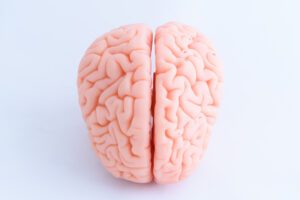
Metabolic disorders can cause an acquired brain injury (ABI) when waste products build up in the brain.
A brain injury caused by metabolic disorders can begin after birth and continue throughout life. A quick diagnosis and treatment can limit the brain injury in some cases. However, in others, the side effects of the disorder may eventually cause death.
Metabolic Disorders Cause Progressive Brain Injuries
A metabolic disorder occurs when the enzymes that metabolize certain substances are missing or do not function properly. This is usually a congenital health issue, but the complications are not always obvious at birth or shortly after.
Waste products build up in the body’s organs, tissues, and cells when enzymes don’t function properly. When these waste products build up in the brain, it can damage nearby cells. As more and more brain cells are affected and die, neurological symptoms begin to appear.
Depending on what enzymes are missing, a metabolic disease can begin almost immediately following birth or during the first weeks of life. In some cases, the obvious symptoms may not begin until adulthood.
Understanding Metabolic Disorders and an ABI
Some metabolic diseases can be treated by taking an enzyme or following a certain diet. However, others continue to cause increasing damage to the body. Eventually, the person may suffer various organ failures, which could be fatal. Getting a diagnosis as soon as possible and beginning the right treatment is the best way to limit brain injuries.
Brain injuries related to a metabolic disorder can affect different areas of the brain. A person suffering from an ABI may experience different symptoms and side effects, depending on the areas affected and the severity of the injury. Some symptoms may only be temporary. However, brain injury symptoms will increase in intensity and regularity, if waste products are allowed to accumulate in the brain.
Some common symptoms and effects of an ABI include:
- Loss of consciousness
- Difficulty with mobility and dexterity
- Loss of speech, or trouble finding the right words
- Disorientation and confusion
- Poor concentration and focus
- Decreased reaction time
- Loss of short-term memory and other memory issues
- Severe fatigue
- Sleep disorders
- Dizziness and balance issues
- Headaches
- Double vision
- Loss of sense of smell
- Deafness or ringing in the ears
- Emotional and behavioral changes
- Drastic changes in personality
- Epilepsy and seizures
Treatment and Rehabilitation of an ABI from a Metabolic Disorder
Metabolic disorders can cause mild to severe brain injuries. If toxic substances build up in the brain for only a short period, the brain injury may be mild. The patient may recover after receiving treatment.
When toxic substances accumulate over a longer period or when there is no effective treatment, the injuries may be more severe. The patient may require intensive rehabilitation at an inpatient facility. However, if no treatment exists for the metabolic disorder, the toxic substances will continue to damage the brain.
Treatment and Therapy of Terminal Disorders
The goal of therapy and rehabilitation is to offer the best possible quality of life for the rest of the patient’s days. Some symptoms of an ABI are permanent. Those who lose speech or mobility skills may never regain them because of the progressive nature of their disorders. Ongoing care is usually necessary in such a case, and families may choose to place their loved ones in a long-term care facility or hospice care.
Metabolic Disorders, ABIs, and Civil Suits for Compensation
Not every metabolic disorder that results in an ABI can form the basis of a civil suit. However, if your loved one’s doctor failed to diagnose a disorder that led to one, you may have a viable medical malpractice claim.
If your loved one suffered an acquired brain injury because of an undiagnosed or misdiagnosed metabolic disorder, you may be eligible to pursue compensation for your damages. The personal injury team from Newsome | Melton is standing by to review your case details and explain your legal options. Our brain injury lawyers have more than 20 years of experience and will fight to protect the rights of medical malpractice victims with acquired brain injuries.
Call our team today to learn more about your legal options at (800) 917-5888.
